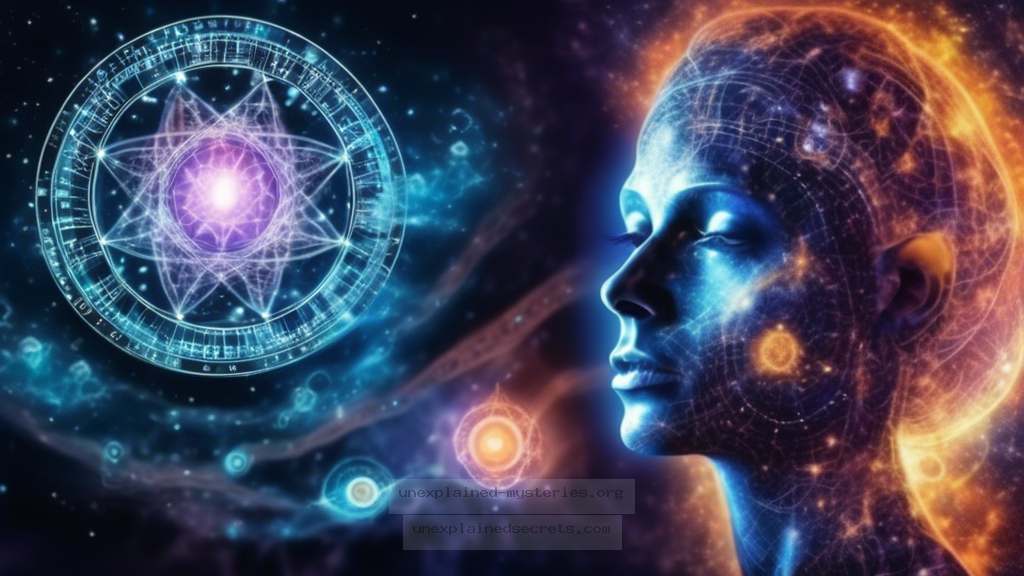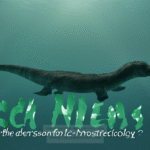Can Scientific Testing Validate the Existence of Psychic Abilities?
Can Scientific Testing Validate the Existence of Psychic Abilities?
The enigma of psychic abilities has captivated humanity for centuries, raising a plethora of questions about the nature of consciousness, perception, and reality itself. Can scientific testing validate the existence of psychic abilities? This question not only intrigues those who are fascinated by the paranormal but also challenges the boundaries of what we consider to be scientifically verifiable. In this blog post, we will delve deep into the realm of psychic phenomena, exploring documented cases, scientific investigations, and the ongoing debates surrounding this captivating topic.
Introduction: The Allure of Psychic Abilities
Psychic abilities are often defined as the purported capacity to perceive information beyond the normal human senses. These abilities can manifest in various forms, including telepathy (mind-to-mind communication), clairvoyance (gaining information about an object or person), and precognition (predicting future events). The allure of psychic phenomena lies not only in their mysterious nature but also in their promise of unlocking hidden dimensions of human potential. As research continues to unfold, many are left wondering if science can indeed provide a framework to validate these extraordinary claims.
Historical Context: The Roots of Psychic Phenomena
The history of psychic phenomena can be traced back to ancient civilizations. Cultures such as the Egyptians, Greeks, and Chinese have documented instances of clairvoyance and telepathy. In the modern era, the late 19th and early 20th centuries saw a surge in interest in psychic phenomena, leading to the establishment of organizations like the Society for Psychical Research (SPR) in 1882. Notable figures such as Sigmund Freud and Carl Jung also expressed interest in the psychological implications of psychic abilities, further legitimizing the field.
Despite this rich history, skepticism remains a prevalent attitude in the scientific community. Many scientists argue that psychic phenomena are merely products of cognitive biases, coincidence, or even fraud. This skepticism has propelled researchers to conduct rigorous experiments aimed at uncovering the truth behind these claims.
Core Concepts: Understanding Psychic Abilities
To grasp the complexity of psychic phenomena, it is essential to understand some core concepts. Psychic abilities are often categorized into several types:
- Telepathy: The ability to read or send thoughts to another person.
- Clairvoyance: Gaining insights about distant or unseen objects or events.
- Precognition: Predicting future events before they occur.
- Psychokinesis: The ability to move objects with the mind.
Each of these abilities is steeped in anecdotal evidence, but translating such experiences into scientific terms has proven challenging. Researchers have sought to establish methodologies that can objectively measure psychic phenomena, leading to various experimental techniques.
Scientific Investigations: Case Studies and Experiments
Numerous studies have attempted to validate psychic abilities through controlled experiments. One of the most notable is the work of Dr. Dean Radin, a prominent researcher in the field of parapsychology. Radin’s experiments often involve random number generators (RNGs) that are influenced by the focused intention of participants. In one study, participants were asked to influence the output of an RNG, with results indicating statistically significant deviations from chance. While these results are intriguing, critics argue that biases and methodological flaws can skew the findings.
Another prominent investigation was the Stargate Project, a secret U.S. government program that explored the potential of psychic phenomena for military and intelligence applications. Despite some compelling results, the project was ultimately deemed inconclusive, highlighting the challenges in obtaining definitive evidence.
Documented Cases: Real-World Examples of Psychic Phenomena
Throughout history, there have been numerous documented cases of individuals claiming psychic abilities. One notable example is that of Edgar Cayce, known as the “Sleeping Prophet.” Cayce would enter a trance state and provide detailed medical diagnoses and life readings for individuals, often revealing information that was not publicly known. His accuracy in many cases has led some to consider him a genuine psychic.
Another fascinating case involves the psychic medium Doris Stokes, who gained fame in the UK for her ability to connect with the deceased. Stokes conducted numerous public demonstrations, often providing specific details about deceased individuals that were later corroborated by family members. Despite the skepticism surrounding her work, her followers argue that her insights could not be easily explained by coincidence alone.
Alternative Perspectives: The Skeptical View
While many embrace the idea of psychic abilities, skeptics maintain that such phenomena can often be attributed to psychological factors. For instance, cognitive biases, such as the Barnum effect, lead individuals to perceive vague or general statements as highly personal and accurate. This psychological phenomenon can create the illusion of psychic accuracy.
Furthermore, researchers like James Randi have dedicated their careers to debunking claims of psychic phenomena. Randi famously offered a million-dollar prize for anyone who could demonstrate paranormal abilities under controlled conditions, a challenge that remains unclaimed. This skepticism fuels a robust debate on the validity of psychic claims.
Common Misconceptions and Clarifications
Misconceptions about psychic abilities abound, often leading to confusion and misunderstanding. Here are some common myths and clarifications:
- Myth: All psychics can predict the future with absolute certainty.
- Clarification: Many psychic predictions are vague and open to interpretation, making them difficult to validate.
- Myth: Psychic abilities are consistent and reliable across all individuals.
- Clarification: Individual experiences and abilities can vary widely, and many self-proclaimed psychics have been debunked.
Understanding these misconceptions is crucial for those interested in exploring the realm of psychic phenomena. It emphasizes the importance of critical thinking and scientific inquiry.
Best Practices for Investigation and Study
For those interested in exploring psychic phenomena, adopting a scientific mindset is essential. Here are some best practices for investigation:
- Use Controlled Conditions: Conduct experiments in controlled environments to minimize external variables that could influence outcomes.
- Document Everything: Keep meticulous records of observations, methodologies, and results for analysis and replication.
- Seek Peer Review: Share findings with the scientific community to encourage scrutiny and validation.
Future Developments: Ongoing Research and Exploration
The field of parapsychology is evolving, and ongoing research continues to explore the possibilities of psychic phenomena. Advances in neuroscience and psychology may offer new insights into understanding consciousness and the potential for psychic abilities. As technology develops, researchers are employing sophisticated methods, such as brain imaging techniques, to examine the neurological correlates of psychic experiences.
Additionally, interdisciplinary collaborations between scientists and parapsychologists may yield promising results, bridging the gap between skepticism and open-minded exploration of the unknown. The future of psychic research holds the potential for groundbreaking discoveries that could redefine our understanding of human consciousness.
Conclusion: The Quest for Understanding Psychic Abilities
In summary, the question of whether scientific testing can validate the existence of psychic abilities remains a complex and controversial topic. While there have been intriguing findings and documented cases, the skepticism surrounding these phenomena continues to challenge researchers. By adopting a scientific approach, investigating with rigor, and remaining open to new possibilities, we may inch closer to understanding the mysteries of psychic abilities. The journey ahead is one filled with intrigue and the promise of discovery in the ever-expanding landscape of human consciousness.
Other Articles
Recent Posts
- What Happened to Flight MH370? The Conspiracy Theories That Still Haunt Us
- What Secrets Lurk Within the Walls of the Infamous Trans-Allegheny Lunatic Asylum?
- What Evidence Supports the Existence of Bigfoot in the Pacific Northwest?
- What Happened to the Indus Valley Civilization? Unraveling the Mysteries of Ancient Urban Life
- Can Telepathy Be Scientifically Proven Through Laboratory Evidence?







